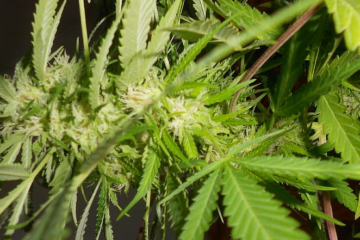The use of medicinal cannabis in Australia has grown significantly since its legalization in 2016. With an increasing number of patients using cannabis for conditions like chronic pain, anxiety, and cancer-related nausea, questions about its impact on workplace safety and employment are becoming more pressing. One recent case involving a Brisbane man, Michael Gauci, highlights some of the key misconceptions and legal complexities surrounding medicinal cannabis use in the workplace.
The Case of Michael Gauci
Michael Gauci, a stevedore working for the multinational logistics company DP World, had a doctor’s prescription for medicinal marijuana. He used it to manage a mental health condition, with the medication coming in the form of oil and a vape. Despite having an impeccable work record and taking his medication well before starting his shift, he lost his job after a random drug test detected THC (tetrahydrocannabinol), the active compound in cannabis.
The Fair Work Commission dismissed his unfair dismissal claim, highlighting a significant issue: a gap between Australia’s occupational health and safety laws and the use of medicinal marijuana in the workplace.

1. Misconception: Medicinal Cannabis Doesn’t Affect Safety or Performance
One common misconception is that medicinal cannabis, particularly when prescribed for pain or mental health issues, does not impair a worker’s ability to perform their job. However, this is not always the case.
In Mr. Gauci’s case, despite his claim that he felt fine and wasn’t impaired, the company’s drug test revealed THC levels that were far above the permissible limit. THC can remain in the body for an extended period, potentially impairing cognitive and motor functions, even if the user doesn’t feel “high” or affected at the moment.
Employers have a responsibility to maintain a safe work environment, especially in safety-critical roles, such as operating heavy machinery. In these instances, even trace amounts of THC can pose significant risks to safety, which is why drug testing policies often have strict limits.
2. Misconception: Employees Can Safely Use Medicinal Cannabis and Disclose It When Needed
Another misconception is that employees using medicinal cannabis can simply disclose their prescription to their employer and continue working without consequence. This assumption fails to consider the complexities of workplace drug policies and safety concerns.
In Mr. Gauci’s case, he did not disclose his prescription for fear of being dismissed, an issue that underscores the challenges employees face. Even if medicinal cannabis is legal and prescribed by a doctor, it does not guarantee that employees will be protected from disciplinary action, particularly if they test positive for THC while operating machinery or performing other safety-sensitive tasks.
3. Misconception: Medicinal Cannabis Use is Always Accommodated by Employers
While medicinal cannabis is legal for certain medical conditions in Australia, its use is not always accommodated in the workplace. Employers are entitled to enforce drug and alcohol policies, particularly in industries where safety is paramount.
Medicinal cannabis users are often expected to take responsibility for ensuring that their medication does not interfere with their ability to perform their duties. In Mr. Gauci’s case, his employer’s policy on drug and alcohol testing did not allow for exceptions, even though his use of cannabis was prescribed for medical reasons. This highlights the tension between workers’ rights to medical treatment and employers’ need to ensure a safe workplace.
4. Misconception: THC Isn’t Tested for in Routine Workplace Drug Tests
Many people assume that THC will not show up in standard workplace drug tests, particularly in random or routine screenings. However, THC can be detected in urine for several days after consumption, and in some cases, even longer.
The case of Mr. Gauci, whose THC levels were found to be 10 times the permissible amount, underscores the importance of understanding the detection window and the potential consequences for workers who test positive.
5. Misconception: Medicinal Cannabis Will Always Be Considered an Impairment in the Workplace
A final misconception is that any use of medicinal cannabis automatically equates to impairment, which may not always be the case.
While THC can cause impairment, its effects vary depending on the individual, the dosage, and the form of consumption. For example, medicinal cannabis oils or vapes can have different absorption rates, and their impact on cognitive or motor skills may not be immediately apparent.
However, workplace policies tend to err on the side of caution, assuming that any trace of THC could pose a potential risk to safety. This is a legal and ethical consideration for employers who are required to ensure the well-being of all employees.
As the number of people using medicinal cannabis in Australia continues to rise, both employees and employers must better understand the intersection between medicinal cannabis use and workplace policies. There is still a significant gap in the legal framework regarding how medicinal cannabis is handled in safety-critical roles, and employees must be aware of the risks and potential consequences of using medicinal marijuana. At the same time, employers need to balance their duty to maintain a safe work environment with the rights of workers who rely on medicinal cannabis for health reasons.



